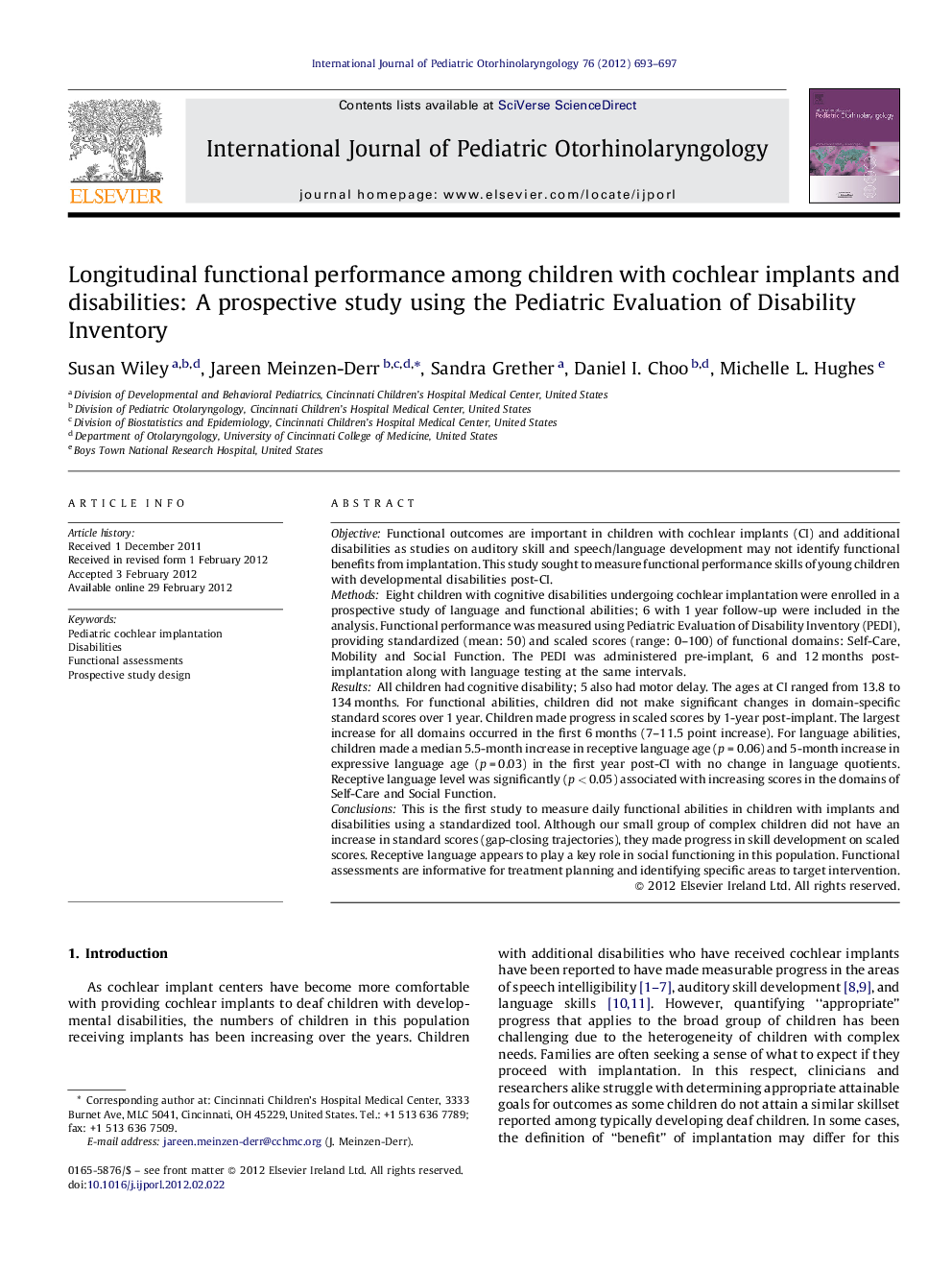| کد مقاله | کد نشریه | سال انتشار | مقاله انگلیسی | نسخه تمام متن |
|---|---|---|---|---|
| 4112778 | 1606032 | 2012 | 5 صفحه PDF | دانلود رایگان |

ObjectiveFunctional outcomes are important in children with cochlear implants (CI) and additional disabilities as studies on auditory skill and speech/language development may not identify functional benefits from implantation. This study sought to measure functional performance skills of young children with developmental disabilities post-CI.MethodsEight children with cognitive disabilities undergoing cochlear implantation were enrolled in a prospective study of language and functional abilities; 6 with 1 year follow-up were included in the analysis. Functional performance was measured using Pediatric Evaluation of Disability Inventory (PEDI), providing standardized (mean: 50) and scaled scores (range: 0–100) of functional domains: Self-Care, Mobility and Social Function. The PEDI was administered pre-implant, 6 and 12 months post-implantation along with language testing at the same intervals.ResultsAll children had cognitive disability; 5 also had motor delay. The ages at CI ranged from 13.8 to 134 months. For functional abilities, children did not make significant changes in domain-specific standard scores over 1 year. Children made progress in scaled scores by 1-year post-implant. The largest increase for all domains occurred in the first 6 months (7–11.5 point increase). For language abilities, children made a median 5.5-month increase in receptive language age (p = 0.06) and 5-month increase in expressive language age (p = 0.03) in the first year post-CI with no change in language quotients. Receptive language level was significantly (p < 0.05) associated with increasing scores in the domains of Self-Care and Social Function.ConclusionsThis is the first study to measure daily functional abilities in children with implants and disabilities using a standardized tool. Although our small group of complex children did not have an increase in standard scores (gap-closing trajectories), they made progress in skill development on scaled scores. Receptive language appears to play a key role in social functioning in this population. Functional assessments are informative for treatment planning and identifying specific areas to target intervention.
Journal: International Journal of Pediatric Otorhinolaryngology - Volume 76, Issue 5, May 2012, Pages 693–697